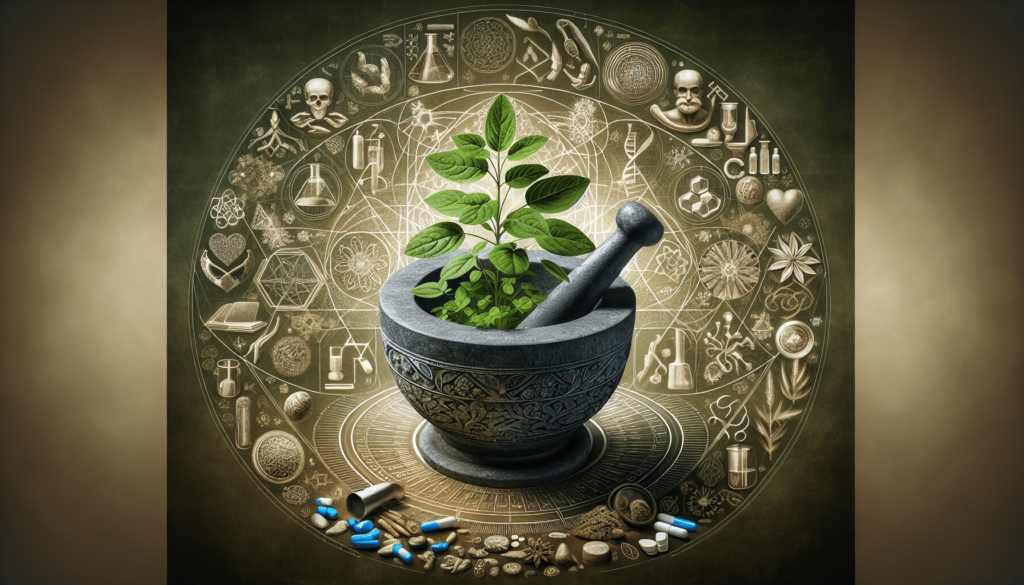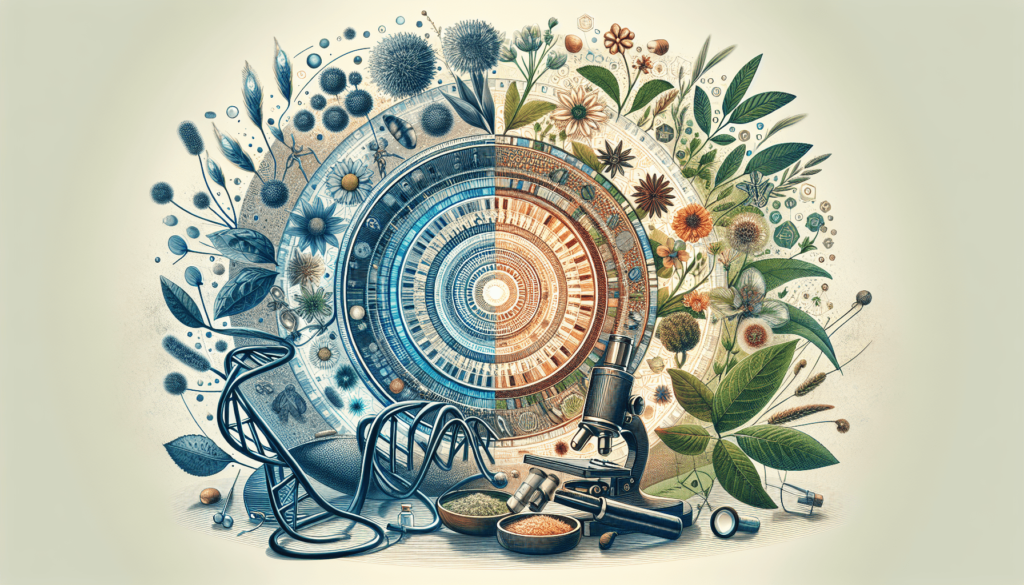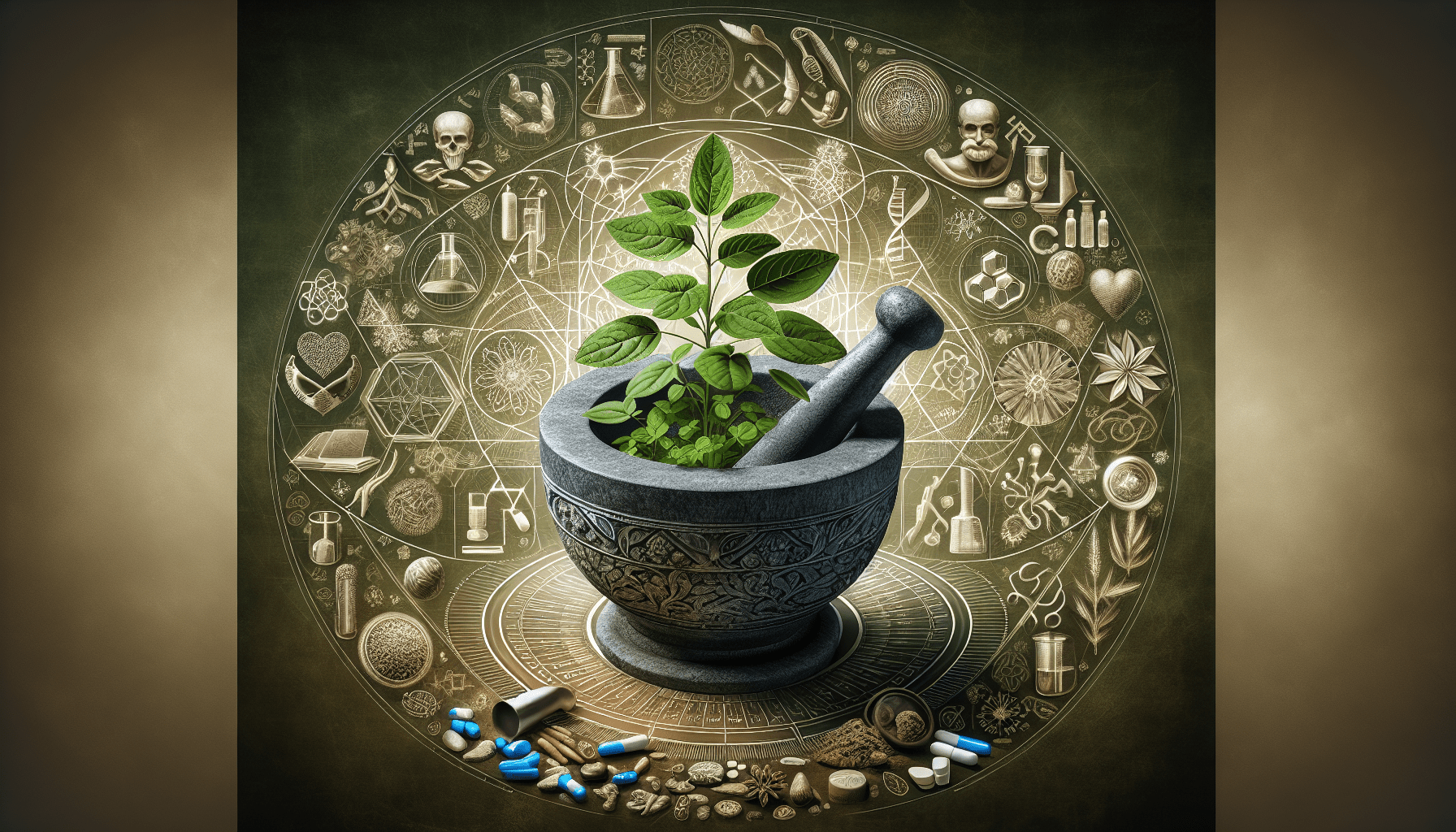Are you curious about the enduring influence of traditional folk medicine in today’s society? In this article, we explore the role that these age-old healing practices play in modern healthcare. From herbal remedies to ancient healing rituals, traditional folk medicine continues to captivate and offer alternative approaches to wellness. Delve into the rich history and vibrant present of these traditional practices as we uncover their significance in our health-conscious world.
Traditional Folk Medicine
Traditional folk medicine refers to the healing practices, methods, and beliefs that have been passed down through generations within a particular culture or community. It involves a holistic approach to health, taking into account physical, mental, and spiritual well-being. Traditional folk medicine often incorporates natural remedies, traditional healing practices, and spiritual beliefs to promote overall wellness.
Definition
Traditional folk medicine can be defined as the collection of knowledge, practices, and beliefs that are traditionally and culturally rooted in a particular community or society. It encompasses various healing methods, including herbal remedies, healing practices, and spiritual beliefs. Traditional folk medicine is often based on the principles of traditional knowledge, which have been developed and refined over centuries of practical experience.
Origins
The origins of traditional folk medicine can be traced back to ancient civilizations and indigenous cultures around the world. These practices and beliefs were shaped by the environment, cultural traditions, and spiritual beliefs of each community. They were passed down through generations, with knowledge and practices being shared orally or through apprenticeships. Traditional folk medicine has evolved over time, incorporating new discoveries and adapting to changes in society while still retaining its core principles.
Characteristics
Traditional folk medicine is characterized by its holistic approach to health and well-being. It emphasizes the interconnectedness of the body, mind, and spirit, recognizing that imbalances in one area can affect the others. Traditional folk medicine also tends to focus on prevention and maintaining overall health rather than just treating specific symptoms. It often utilizes natural remedies and practices that are readily available in the local environment, such as herbs, plants, and simple tools.
Different Approaches and Methods in Traditional Folk Medicine
Traditional folk medicine encompasses various approaches and methods for healing and promoting wellness. These include herbal remedies, healing practices, and spiritual beliefs.
Herbal Remedies
Herbs and plants have long been used in traditional folk medicine for their medicinal properties. Different cultures have their own repertoire of herbal remedies, with specific plants believed to have beneficial effects on different ailments. These remedies are often prepared as teas, poultices, or tinctures and can be used internally or externally. Some commonly used herbs in traditional folk medicine include ginger for digestion, chamomile for relaxation, and echinacea for boosting the immune system.
Healing Practices
Traditional healing practices, such as acupuncture, massage, and traditional bone setting, are integral parts of traditional folk medicine. These practices aim to restore balance and harmony within the body, promoting the body’s natural healing processes. Acupuncture, for example, involves the insertion of fine needles at specific points along the body’s meridians to regulate the flow of energy. Massage, on the other hand, can help improve circulation, relieve muscle tension, and promote relaxation.
Spiritual Beliefs
Spiritual beliefs and rituals are often intertwined with traditional folk medicine. Many cultures believe that spiritual factors, such as the influence of ancestors or the energy of the universe, play a significant role in health and illness. Traditional healers may perform rituals, ceremonies, or prayers to address spiritual aspects of the illness and restore balance. These practices can provide emotional and psychological support, offering a sense of comfort and connection to something larger than oneself.

Cultural Significance and Heritage
Traditional folk medicine holds great cultural significance and serves as an important heritage of communities around the world. It plays a vital role in preserving cultural practices and promoting community bonding and identity.
Preservation of Cultural Practices
Traditional folk medicine is deeply intertwined with cultural traditions and customs. It reflects the unique perspectives, values, and beliefs of a community and serves as a link to their past. By preserving and practicing traditional folk medicine, communities can maintain their cultural identity and pass on their heritage to future generations. This preservation not only ensures the continuity of traditional knowledge but also contributes to the richness and diversity of global healthcare practices.
Community Bonding and Identity
Traditional folk medicine often involves the participation of the entire community. It fosters a sense of unity and solidarity as community members come together to share knowledge, support one another, and preserve their cultural traditions. Traditional healers, who are often respected and revered members of the community, play a crucial role in providing healthcare and acting as a source of guidance and wisdom. Traditional folk medicine strengthens community bonds and reinforces a shared sense of identity and belonging.
Integration with Modern Medicine
As modern medicine continues to evolve, there is growing recognition of the value and potential benefits of integrating traditional folk medicine with conventional healthcare practices. This integration can take the form of complementary and alternative medicine, as well as collaboration and coexistence between traditional and modern medical systems.
Complementary and Alternative Medicine
Traditional folk medicine can complement and augment conventional medical treatments. Many individuals choose to incorporate traditional practices alongside modern medicine to address their health needs comprehensively. Complementary and alternative medicine can provide additional options for individuals seeking a more holistic approach to their healthcare. For example, traditional herbal remedies might be used alongside prescribed medications to manage symptoms and promote well-being.
Collaboration and Coexistence
There is a growing acknowledgment of the need for collaboration and coexistence between traditional folk medicine and modern medicine. By recognizing each system’s strengths and limitations, healthcare professionals can work together to provide optimal care for patients. Collaboration can involve sharing knowledge, resources, and expertise between traditional healers and practitioners of modern medicine. In some cases, traditional folk medicine and modern medical practices are integrated within the same healthcare facility, allowing patients to access both approaches as needed.

Effectiveness and Efficacy
The effectiveness and efficacy of traditional folk medicine have been a subject of discussion and research. While empirical evidence may vary for different practices and remedies, both research and patient experiences provide valuable insights into the potential benefits of traditional folk medicine.
Research and Evidence
Scientific research is uncovering the potential benefits and mechanisms of action behind certain traditional folk medicine practices and remedies. For example, studies have shown that acupuncture can stimulate the release of endorphins and other neurotransmitters, providing pain relief and improving mood. Additionally, some herbal remedies have been found to contain active compounds with therapeutic properties. Research continues to contribute to the understanding of traditional folk medicine and its potential role in healthcare.
Patient Experiences
Beyond scientific research, the experiences of individuals who have utilized traditional folk medicine offer valuable perspectives. Many individuals have reported positive outcomes and subjective improvements in their health and well-being through the use of traditional remedies and practices. Patient experiences can shed light on the holistic benefits, including emotional and psychological well-being, that traditional folk medicine can provide. These experiences are a testament to the impact of traditional folk medicine on individuals’ health journeys.
Accessibility and Affordability
One of the significant advantages of traditional folk medicine is its potential for accessibility and affordability, particularly in resource-limited settings. Its suitability for different populations and economic considerations can contribute to equitable healthcare provision.
Suitability for Different Populations
Traditional folk medicine often utilizes locally available resources, making it suitable for diverse populations, including those in remote or underserved areas. Herbal remedies and healing practices can be easily accessible and affordable, minimizing the barriers to healthcare faced by marginalized communities. By incorporating traditional folk medicine into healthcare systems, practitioners can cater to the specific needs and cultural backgrounds of different populations, ultimately promoting more inclusive and patient-centered care.
Economic Considerations
Traditional folk medicine can offer cost-effective alternatives to expensive modern medical treatments. Herbal remedies, for example, can be significantly cheaper than pharmaceutical drugs, making them more accessible to individuals with limited financial resources. Integrating traditional folk medicine into healthcare systems can help reduce healthcare costs while still ensuring quality care. This economic consideration contributes to the sustainability and affordability of healthcare services, benefiting both individuals and healthcare systems.
Challenges and Controversies
Despite its cultural significance and potential benefits, traditional folk medicine faces challenges and controversies that need to be addressed for its wider acceptance and integration into healthcare systems.
Standardization and Regulation
One of the major challenges in traditional folk medicine is the lack of standardization and regulation. The variation in practices, remedies, and beliefs across different cultures makes it difficult to establish uniform guidelines. Standardization efforts can help ensure the safety and quality of traditional folk medicine practices and remedies while respecting cultural diversity. The development of regulations and guidelines can provide a framework for practitioners and help bridge the gap between traditional and modern medical systems.
Ethical Concerns
Ethical concerns can arise when traditional folk medicine practices involve cultural appropriation, exploitation, or fraud. It is essential to approach traditional knowledge with respect and cultural sensitivity, ensuring the informed consent of communities and individuals involved. Collaborative efforts that involve active participation and consultation with traditional healers and communities can help address these ethical concerns and ensure the preservation and promotion of traditional folk medicine in an ethical manner.
Integration into Healthcare Systems
The integration of traditional folk medicine into formal healthcare systems has gained increasing attention and support in recent years. Recognizing its role and potential benefits, many countries have taken steps towards official recognition, training, and education related to traditional folk medicine.
Official Recognition and Integration Policies
Several countries have officially recognized traditional folk medicine as part of their healthcare systems. They have established policies and frameworks to facilitate the integration of traditional practices and practitioners into mainstream healthcare services. Official recognition can help protect and preserve traditional knowledge while ensuring the safe and ethical practice of traditional folk medicine. It allows patients to access a wider range of healthcare options and promotes cultural diversity in healthcare provision.
Training and Education
Training and education play a crucial role in the integration of traditional folk medicine into modern healthcare systems. It is important to offer comprehensive and standardized training programs for traditional healers, practitioners, and healthcare professionals to ensure safe and effective practice. By providing opportunities for interdisciplinary learning and collaborative research, training and education can foster mutual understanding and respect between traditional and modern medical systems.
Traditional Folk Medicine in Global Health
Traditional folk medicine has an important role to play in global health, particularly in primary healthcare settings. Its unique perspective, accessibility, and focus on holistic well-being contribute to comprehensive and patient-centered care.
Global Perspective and Collaboration
Traditional folk medicine offers diverse perspectives on health and wellness that can greatly enhance global healthcare practices. By actively involving traditional healers, practitioners, and communities, global health initiatives can benefit from the rich cultural knowledge and traditional practices that exist worldwide. Collaborative efforts that promote mutual learning and respectful exchange can bridge gaps and strengthen healthcare systems through interdisciplinary approaches.
Contributions to Primary Healthcare
Traditional folk medicine has the potential to make significant contributions to primary healthcare, particularly in low-resource settings. Its emphasis on prevention, affordability, and accessibility aligns with the principles of primary healthcare. By integrating traditional folk medicine into primary healthcare services, communities can have access to a comprehensive range of healthcare options that cater to their cultural and individual needs. This integration can help address health inequities, reduce healthcare costs, and promote community well-being.
Preserving and Documenting Traditional Folk Medicine
Preservation and documentation efforts are crucial for safeguarding the wealth of traditional knowledge and practices contained within traditional folk medicine.
Conservation and Documentation Efforts
To preserve traditional folk medicine, it is important to actively document and document traditional knowledge and practices. Efforts should be made to record the experiences, remedies, practices, and beliefs of traditional healers and communities. This documentation can serve as a valuable resource for future generations, researchers, and healthcare professionals. It can also contribute to the broader understanding and recognition of traditional folk medicine as an important part of global healthcare heritage.
Revitalizing Traditional Knowledge
Revitalizing traditional knowledge involves engaging with communities and empowering traditional healers and practitioners. By acknowledging their expertise and wisdom, traditional knowledge can be preserved and integrated into modern healthcare systems. Revitalization efforts can involve providing resources, support, and training to traditional healers, as well as promoting the exchange of knowledge and experiences between generations and across cultures. By revitalizing traditional knowledge, communities can continue to benefit from the unique insights and healing approaches embedded within traditional folk medicine.
In conclusion, traditional folk medicine plays a significant role in today’s healthcare landscape. Its holistic approach, cultural significance, and potential benefits make it a valuable complement to modern medicine. Through recognition, integration, and preservation efforts, traditional folk medicine can contribute to more inclusive, patient-centered, and culturally sensitive healthcare systems worldwide.

